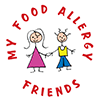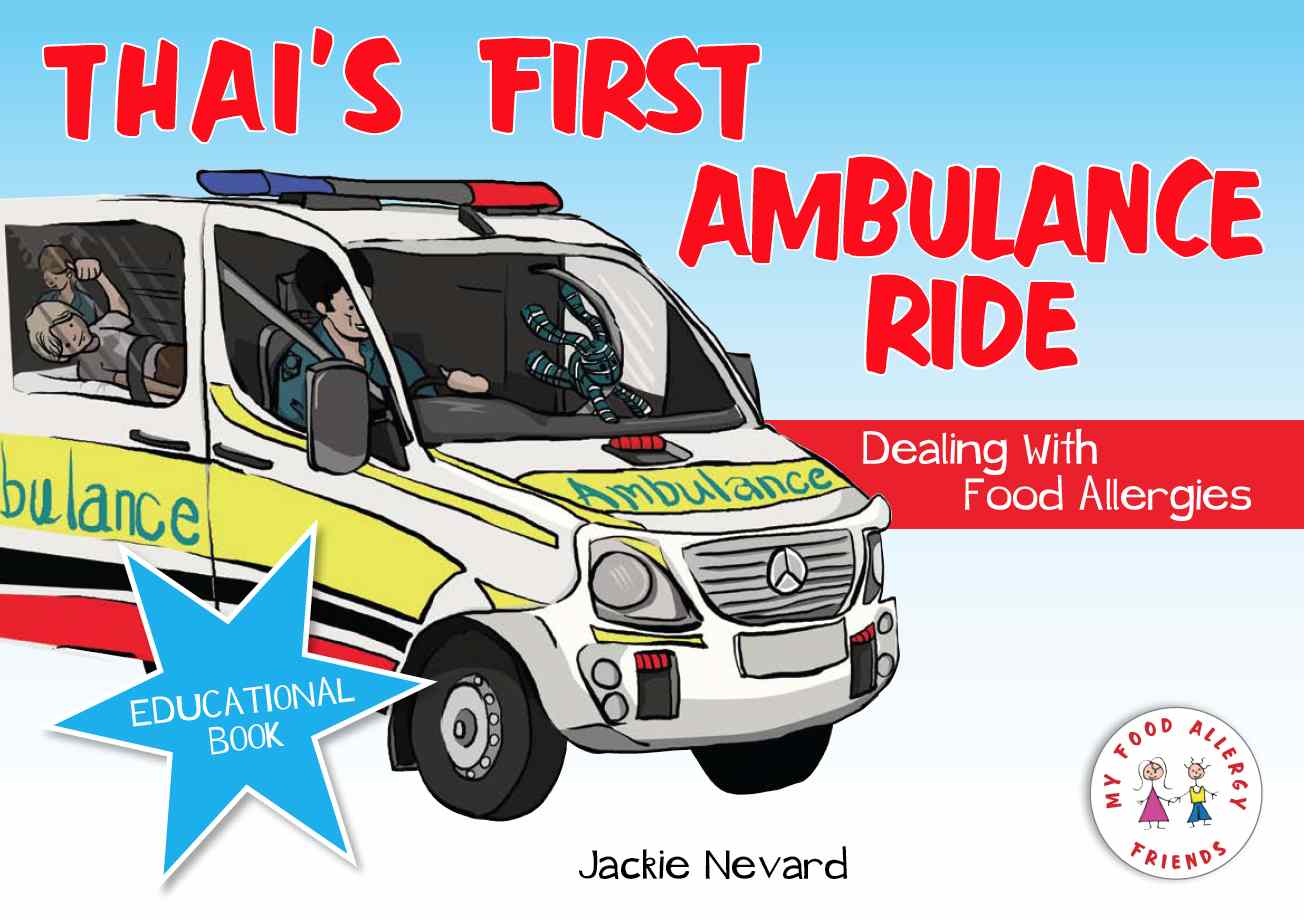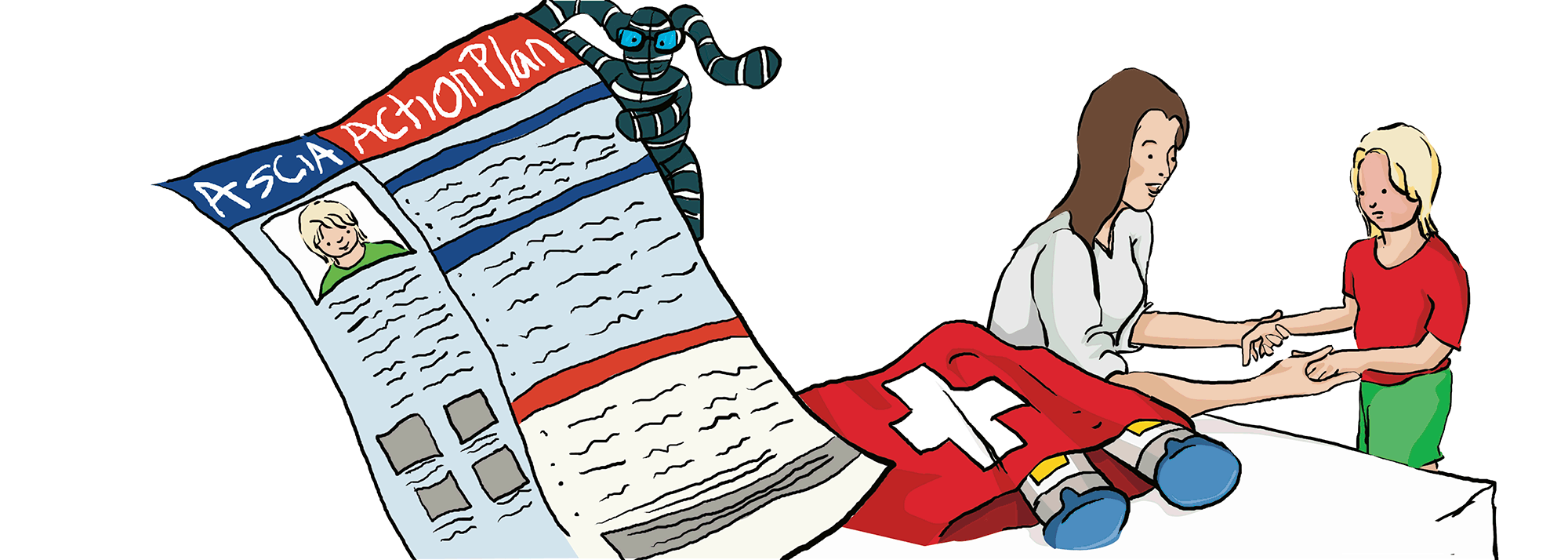
Often we talk about how to avoid allergic reactions,
but this is only part of the picture
WHAT IS ANAPHYLAXIS?
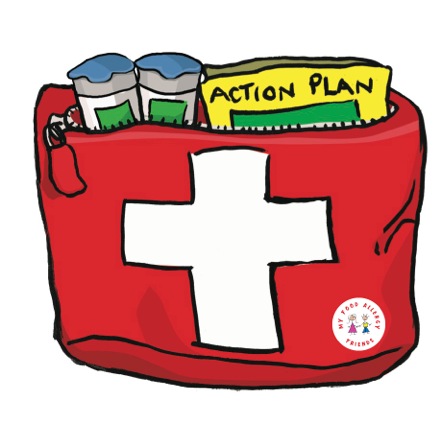
Anaphylaxis is a severe and potentially life-threatening allergic reaction. It is a medical emergency and requires immediate treatment with adrenaline or epinephrine.
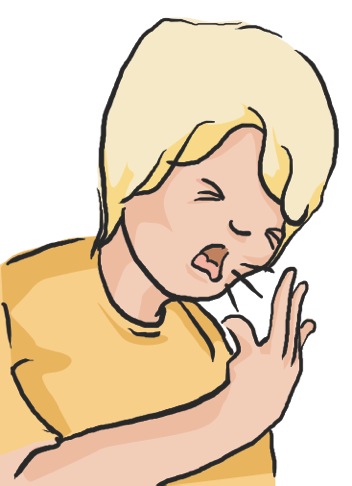
Anaphylaxis can occur after exposure to an allergen such as food, insects, latex, exercise and medicine. Several factors can influence the severity of an allergic reaction such as how much food the person has eaten, how this food was cooked, route of exposure, how well the person was at the time of exposure, such as illness or active asthma.
It is important to know ALL the signs of ANAPHYLAXIS
- Difficult / noisy breathing
- Swelling of the tongue
- Swelling / tightness in the throat
- Wheeze or persistent cough
- Difficulty talking and or hoarse voice
- Persistent dizziness and or collapse
- Pale and floppy (young children)
It often involves several body systems such as
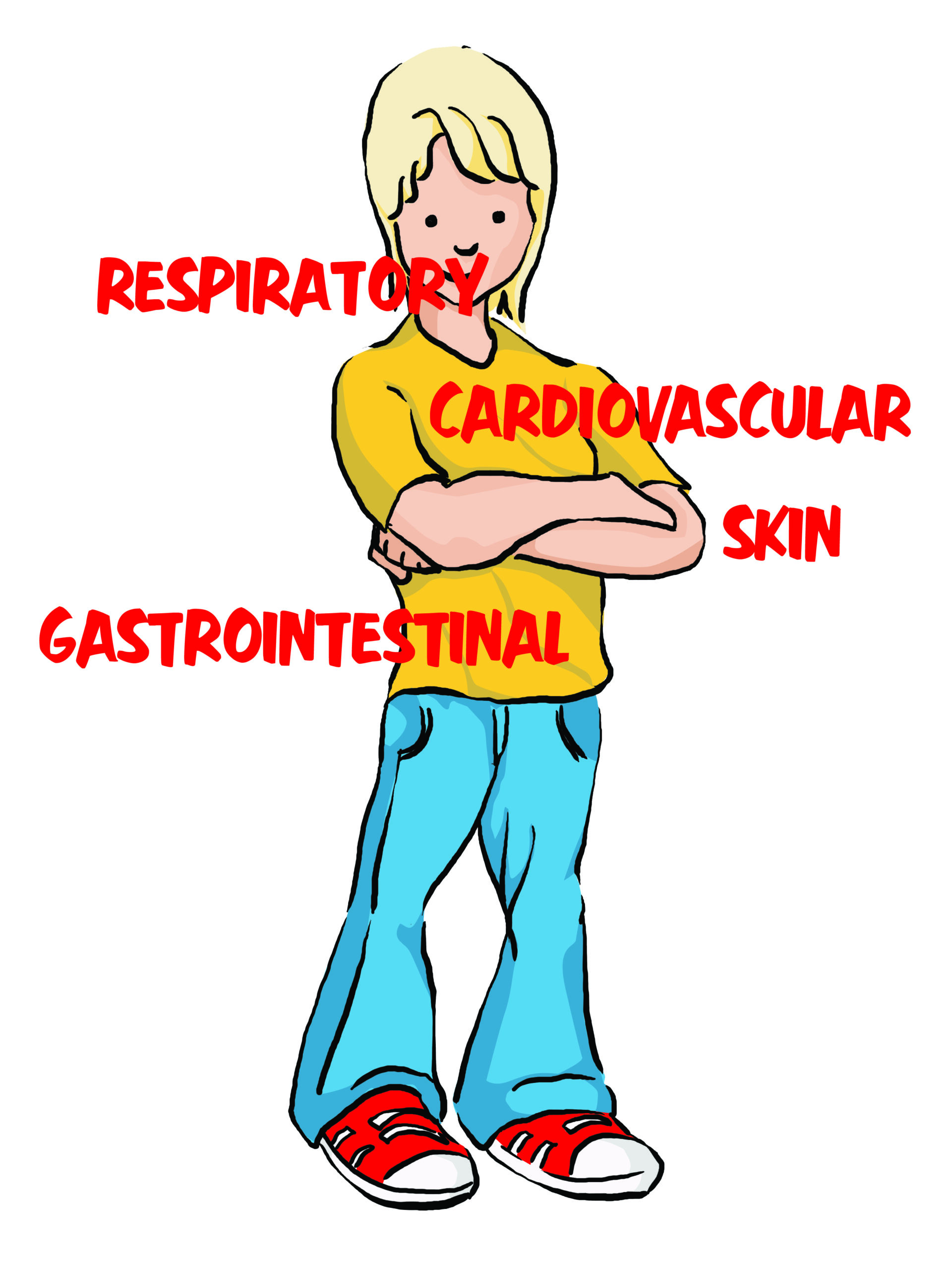
To help you begin the conversation with your child we have created a children’s book covering anaphylaxis.
The aim of this book is to help you discuss the following:
- What is likely to happen to their body, discuss all the symptoms that may occur
- What happens when we use an EpiPen
- What is likely to happen in the ambulance and after they get to hospital
- How this may make them feel
It’s vital that every child with food allergies knows the facts so they can act and get help quickly.

Reactions vary, so it’s important to discuss all the signs and symptoms a child may experience with their body.
Auto-Injectors and Action Plans
WHAT IS AN AUTO-INJECTOR?
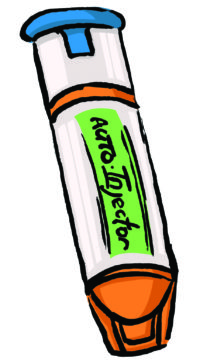
An auto-injector is a medical device used to treat anaphylaxis. In Australia, we currently have two types of auto-injectors called an EpiPen® and Anapen®.
An EpiPen® contains a single, pre-measured dose of adrenaline (epinephrine) and has been designed to be given by non-medical people such as parents, teachers, grandparents, older children, and the patient themselves (if they are well enough
to do so.) Adrenaline works quickly to reverse the symptoms of anaphylaxis. Adrenaline is a short-acting drug and the effects can wear off quickly. A second dose can be given after five minutes if there has been no improvement.
A link to guidelines in Australia
There are two types of EpiPen®.
*EpiPen® Jr (0.15 mg) is recommended for children between 7.5 and 20kg
*EpiPen® (0.3 mg) is recommended for children and adults over 20kg
* These dosage recommendations are based on expert opinion regarding recommended dose for weight and clinical trials of injected adrenaline in children, which is currently at slight variance with the product information leaflet.
In other countries, they have the following auto-injectors EpiPen® – Anapen® – Auvi-Q™ – Jext® – Allerject™ – Adrenaclick® – Twinject® and Emerade®
Further Information for our New Zealand Food Allergy Friends
EpiPens are not funded in NZ. Allergy NZ have been successful in getting the ACC scheme (Accident Compensation Corporation a government programme unique to NZ) to accept claims for anaphylaxis.
Contact Allergy New Zealand Inc for information about ACC claims for anaphylaxis:
ACC claims more information
T. 0800 34 0800 or www.allergy.org.nz/anaphylaxis
NEW auto-injector avaialable from September 2021
Anapen
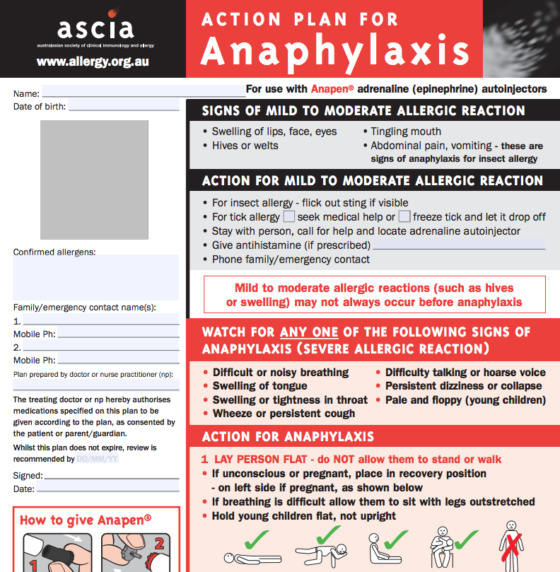
Update to Anapen® Product Information (PI) September 2022
The TGA has approved a change to the Anapen® PI. After firing, Anapen®should be held on the leg for 3 seconds.This change ensures both adrenaline autoinjectors are aligned with injection time and minimises risk of confusion.
Anapen® is available in three doses:
Anapen® Junior 150
contains adrenaline (adrenaline/epinephrine) dose of 150 micrograms/0.3 mL
Anapen® 300
contains adrenaline (adrenaline/epinephrine) dose of 300 micrograms/0.3 mL
Anapen® 500
contains adrenaline (adrenaline/epinephrine) dose of 500 micrograms/0.3 mL
Anapen® is widely available in Australian pharmacies.
From 1st September, Anapen® autoinjectors are subsidised by the PBS. You will need a new authority prescription from your allergist/immunologist, paediatrician, respiratory physician or if you have a repeat prescription from your GP. Please note that you may be entitled to have up to two pens reimbursed though the PBS per year.
ASCIA Adrenaline Injector Dose Recommendations
Children 7.5-20kg (aged around one to five years):
- EpiPen® Junior (150 microgram) or
- Anapen® 150 (Jr) (150 microgram)
Adults and children over 20kg (aged around five years or over):
- EpiPen® (300 microgram) or
- Anapen® 300 (300 microgram)
Adults and children over 50kg (aged around twelve years or over):
- New *Anapen® 500 (500 microgram) or
- Anapen® 300 (300 microgram) or
- EpiPen® (300 microgram).
We have created Anapen resources for you to educate your family and community.
ASCIA ANAPHYLAXIS E-TRAINING
ASCIA has designed an anaphylaxis e-training course for anaphylaxis education throughout Australia and New Zealand. It has been designed to be used by parents, friends, students, patients, work colleagues and carers.
The course is available free of charge at https://anaphylaxis.ascia.org.au
WHAT IS AN ACTION PLAN
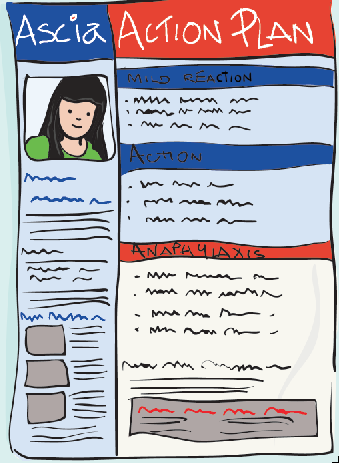 An Action Plan is designed to help you mange an Allergic Reaction giving you step-by-step guidelines of recognising and treating an allergic reaction. ASCIA also have action plans to manage other allergic conditions such as Allergic Rhinitis, Eczema and Fpies. Your Action Plan should always be kept with your EpiPens®.
An Action Plan is designed to help you mange an Allergic Reaction giving you step-by-step guidelines of recognising and treating an allergic reaction. ASCIA also have action plans to manage other allergic conditions such as Allergic Rhinitis, Eczema and Fpies. Your Action Plan should always be kept with your EpiPens®.
REPORTING A REACTION
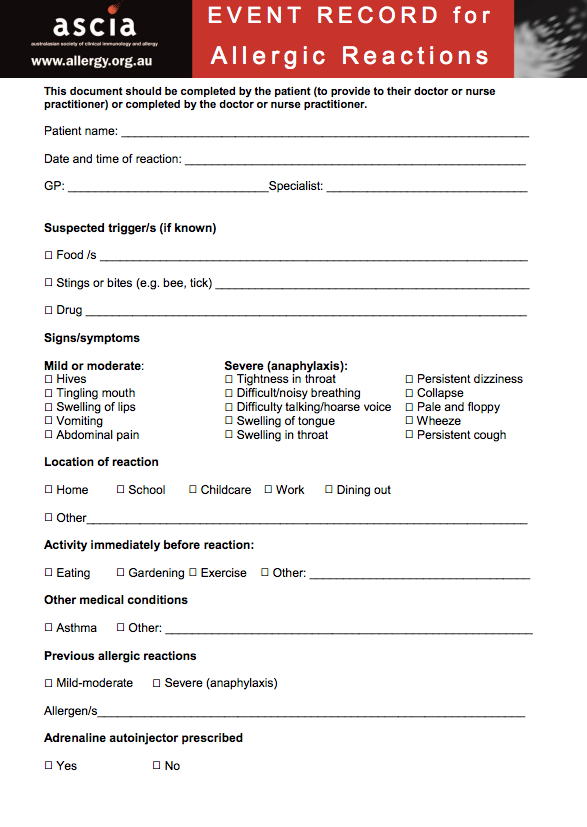
THAI’S STORY
The real Thai had his first reaction when he was seven. Thai had an anaphylactic reaction to milk.
His symptoms played out very differently from his past reactions. There wasn’t a single hive on his body. Thai learned how his body could react and how it could be different each time. He shares his story as he wants others to learn from his experience and know that the EpiPen is nothing to fear.
WATCH HIS STORY BELOW
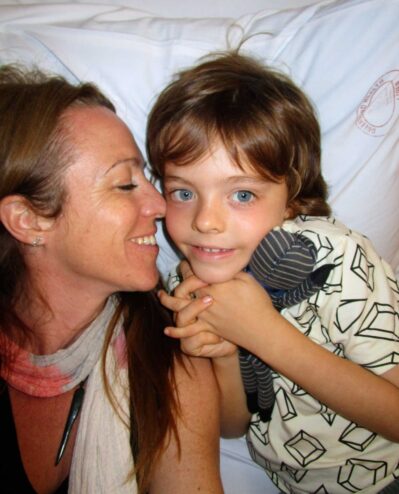
CHANGES TO INSTRUCTIONS ON EPIPEN® ADMINISTRATION 13 JUNE 2017
The devices have not changed, just the instructions on the label, which now include:
- Reduced injection time from 10 to 3 seconds – this is based on research confirming delivery of adrenaline through the 3 second delivery time.
- Removal of the massage step after the injection – this has been found to reduce the risk of irritation at the injection site.
A new short video featuring Dr Andrew Rochford, explaining the changes
VISIT AN AMBULANCE STATION
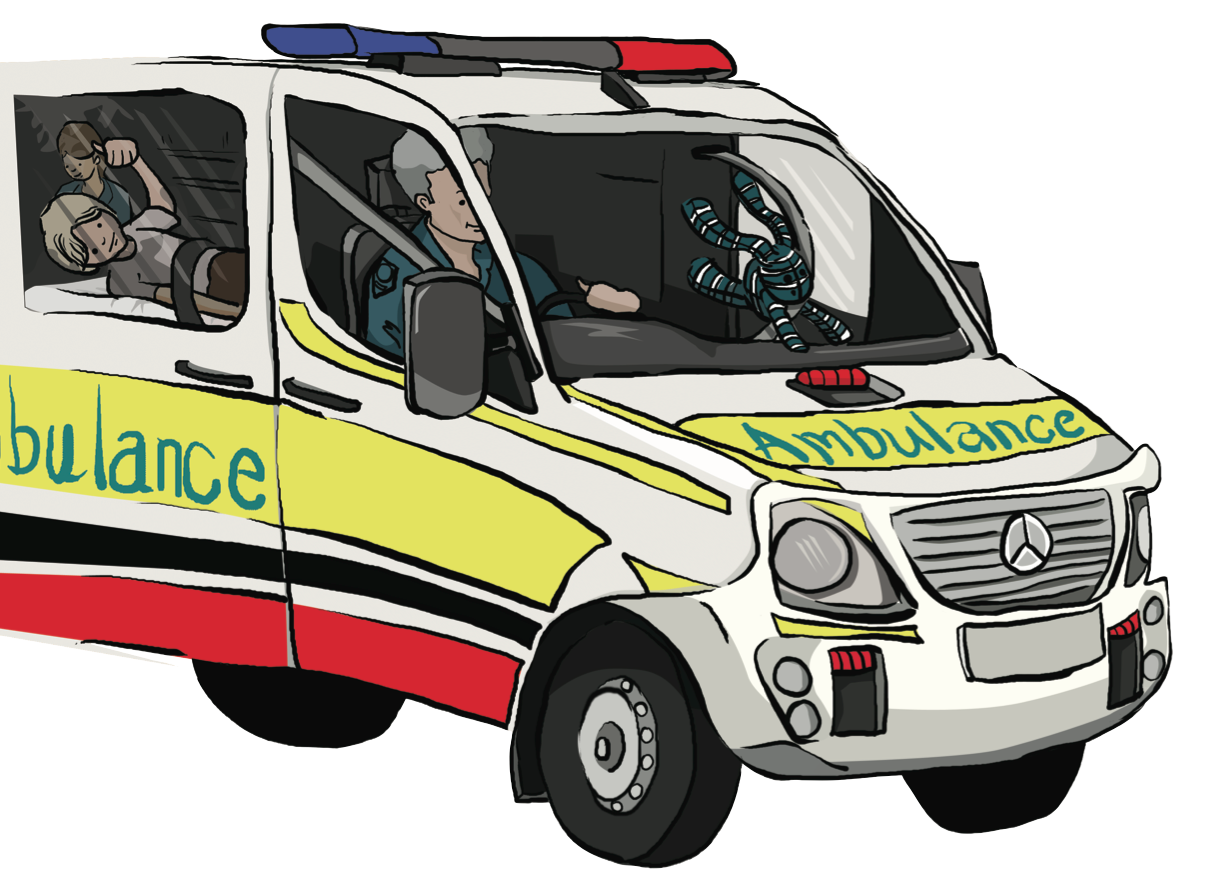
A few months after Thai’s reaction we visited an open day at an ambulance station. He learnt about all the equipment the paramedics used and even got to turn the sirens on. This was a great way to help him process what had happened and would be a good place to visit before your child ever needs an ambulance ride.
Here are some images of what the real Thai discovered.
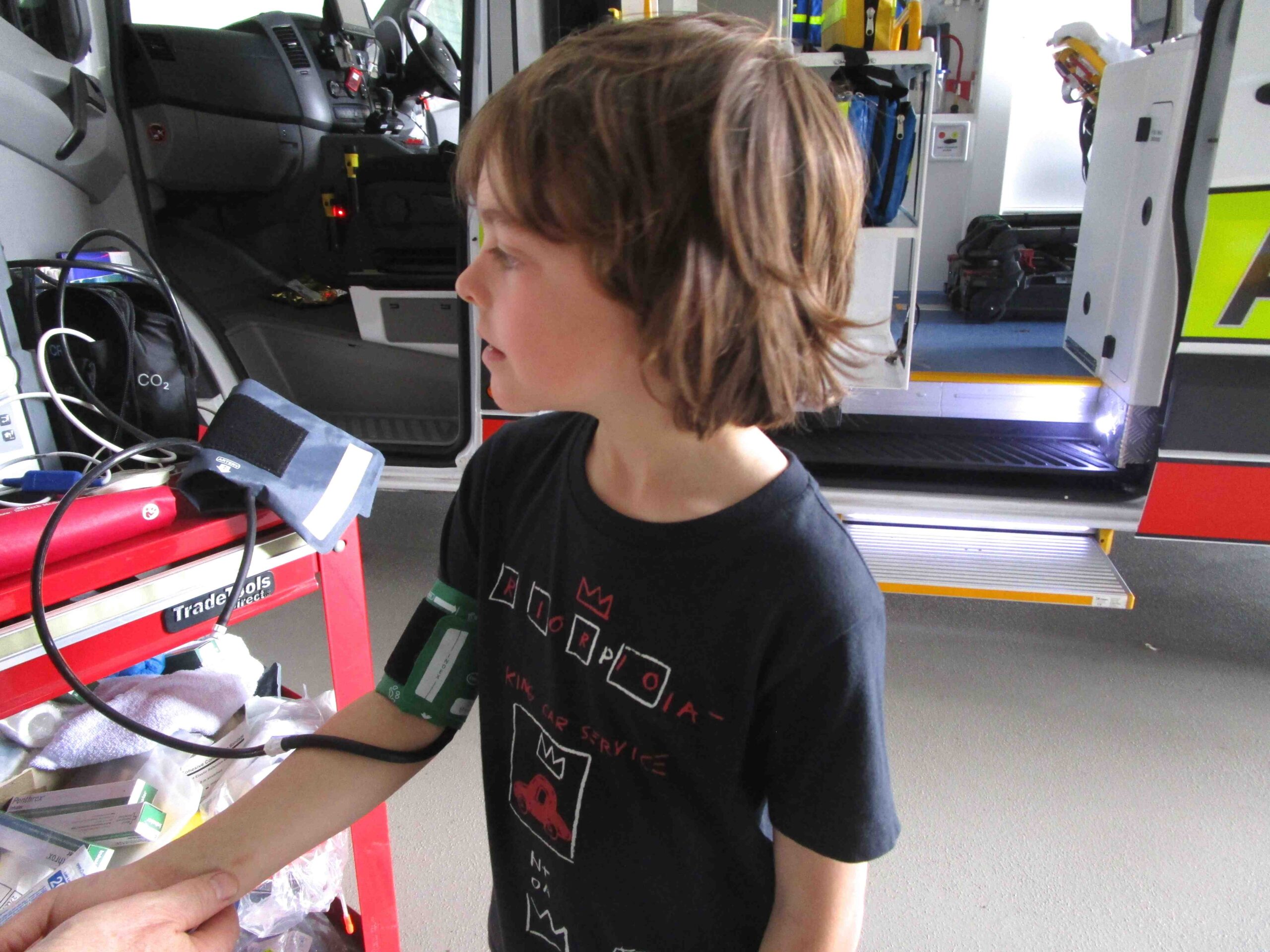
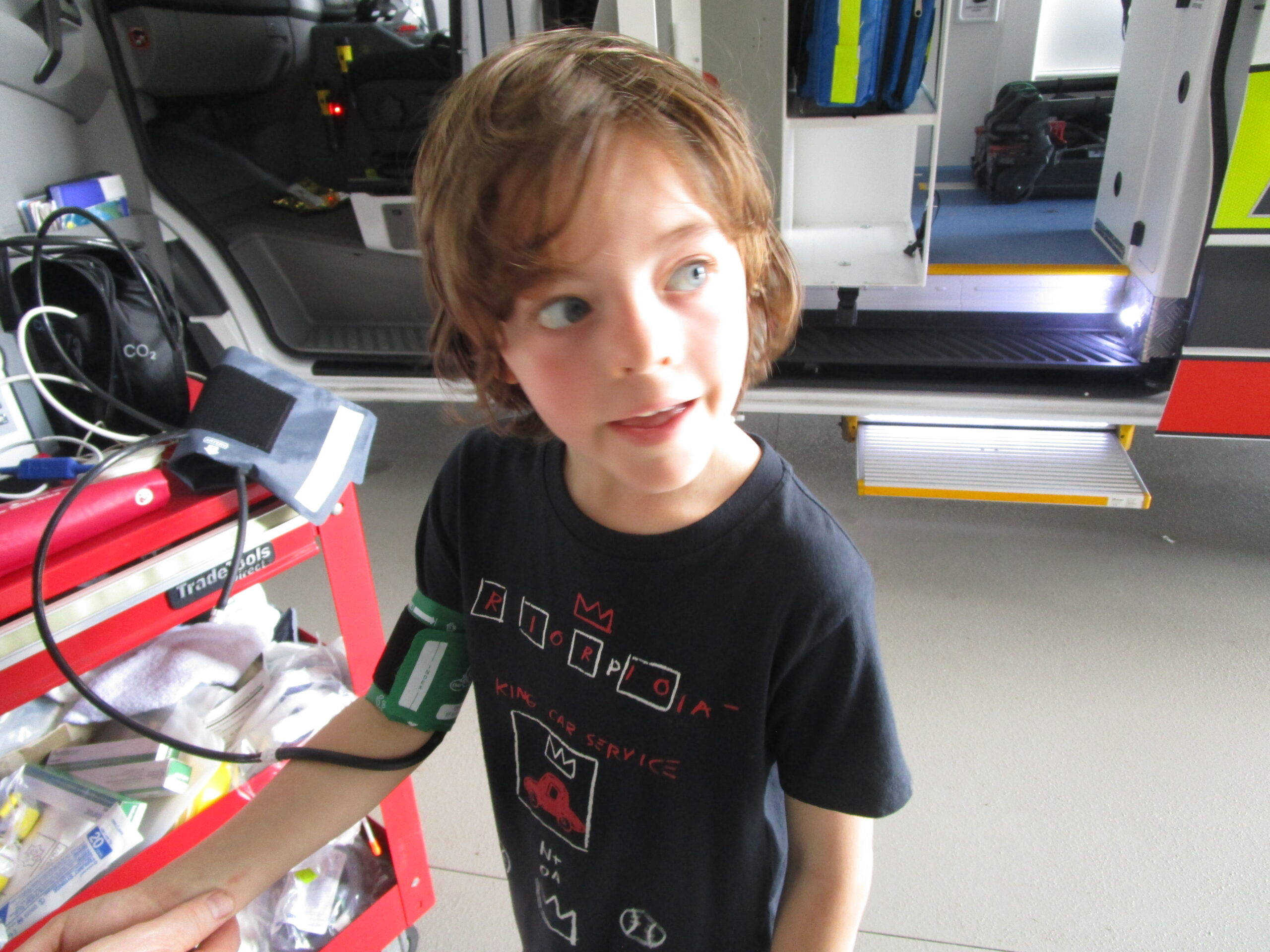
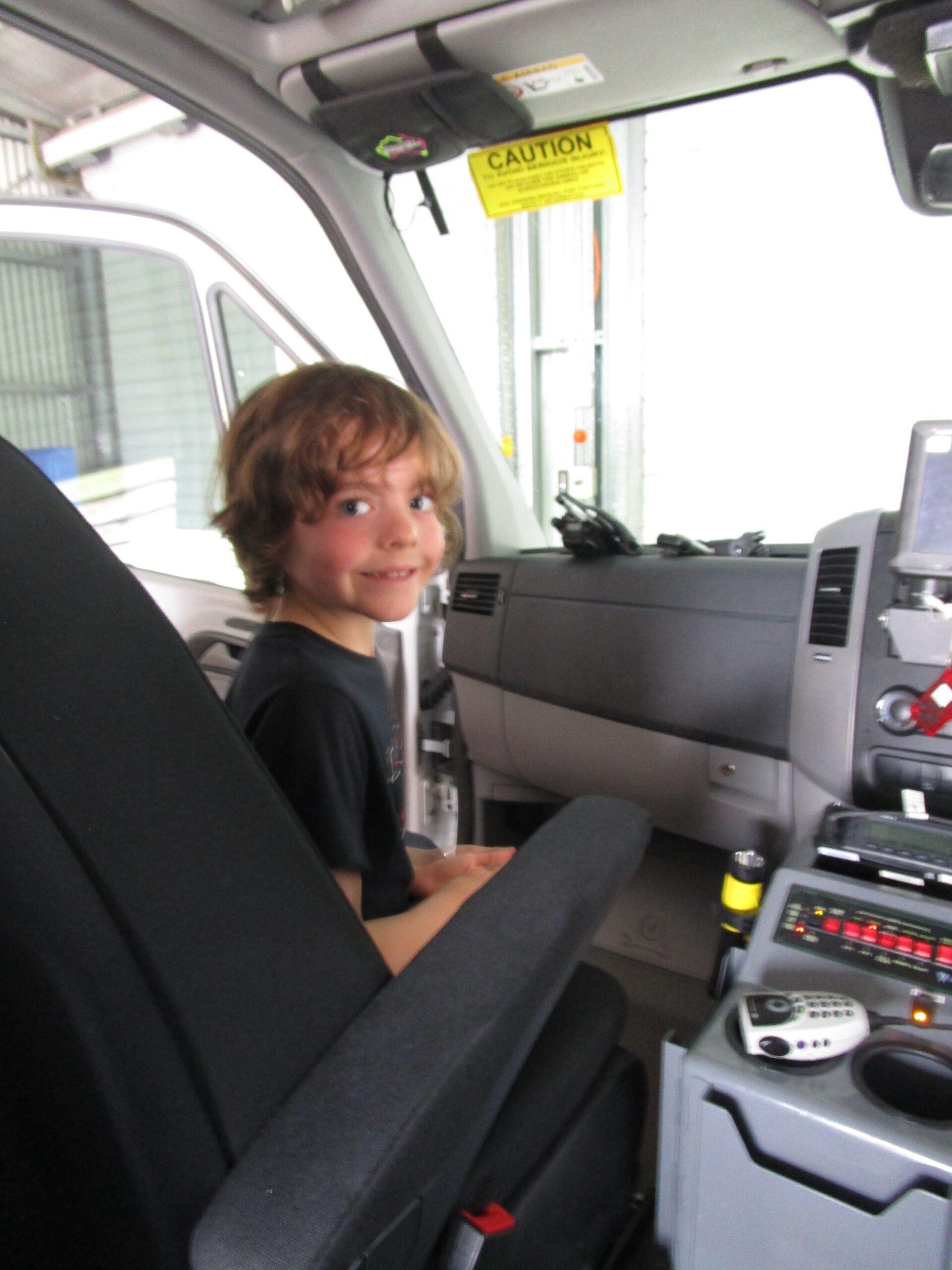
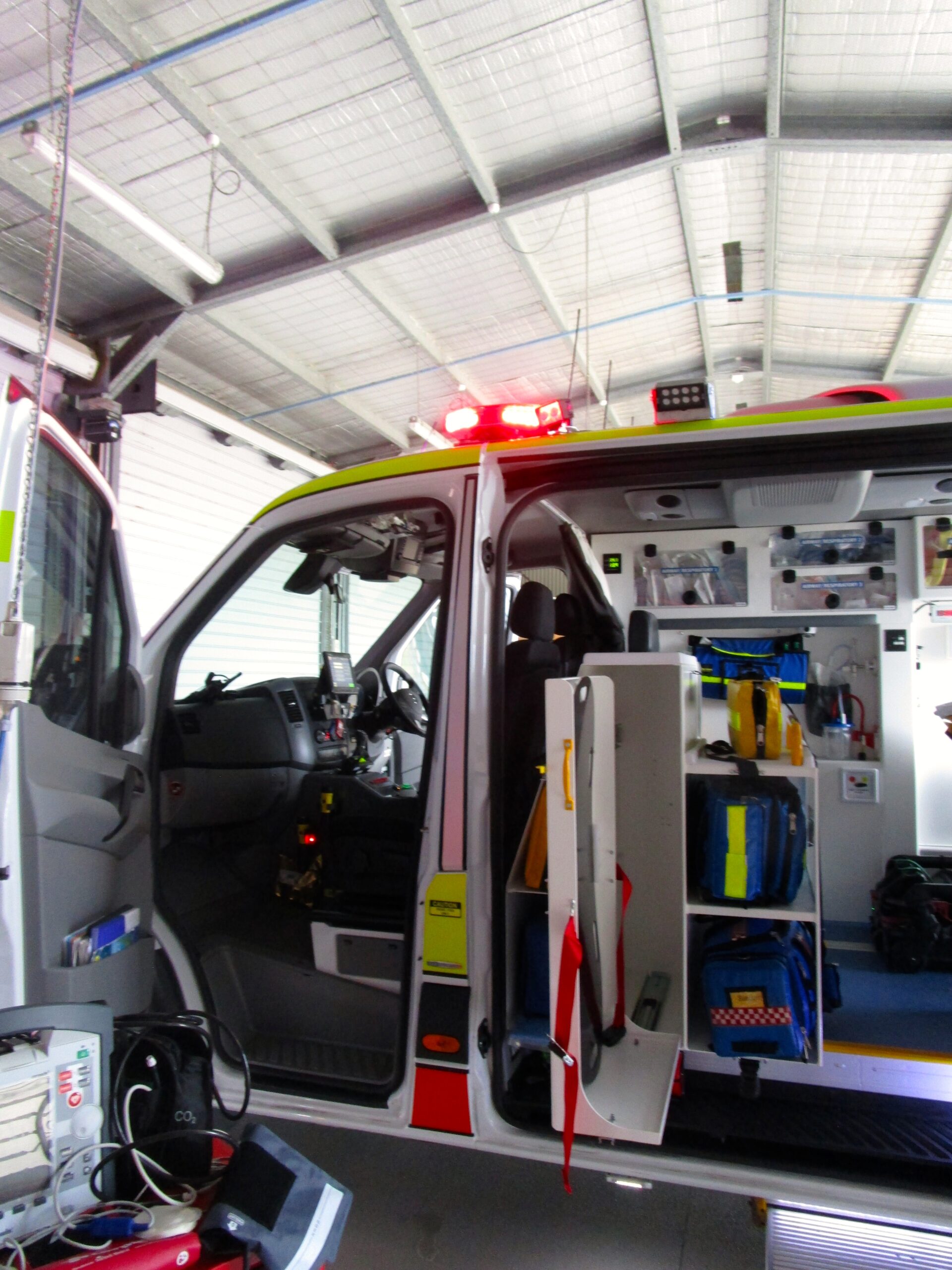
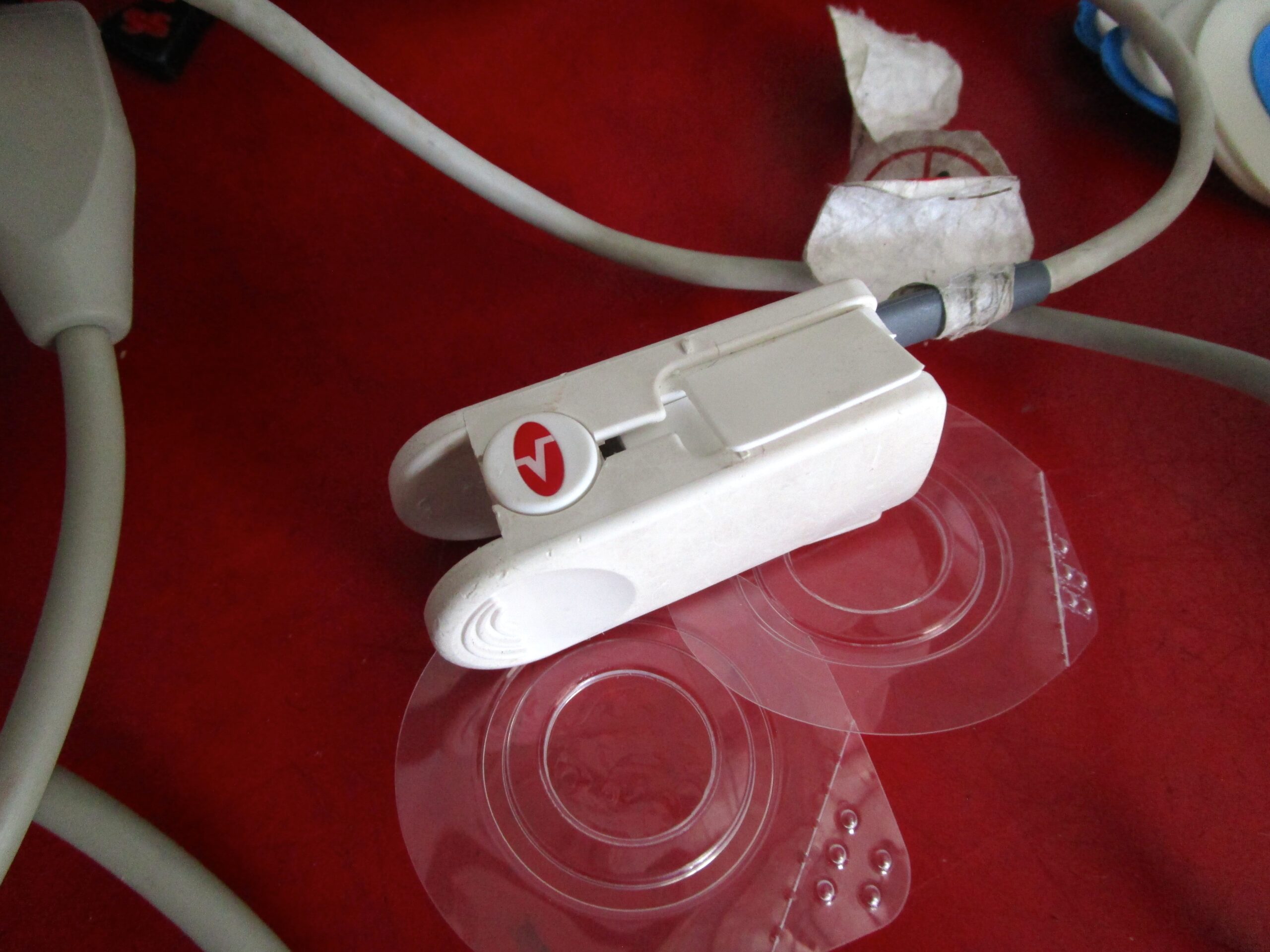
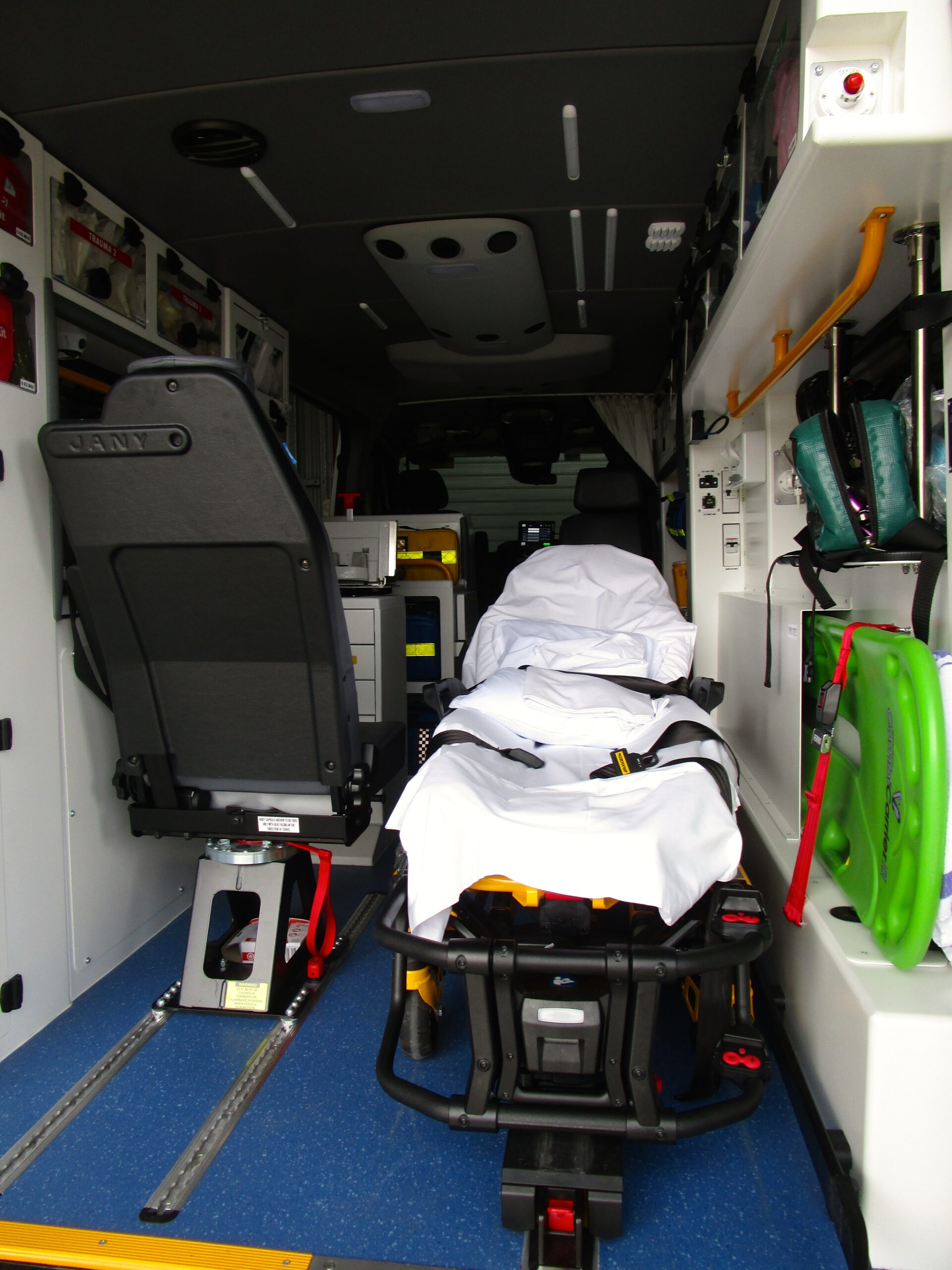
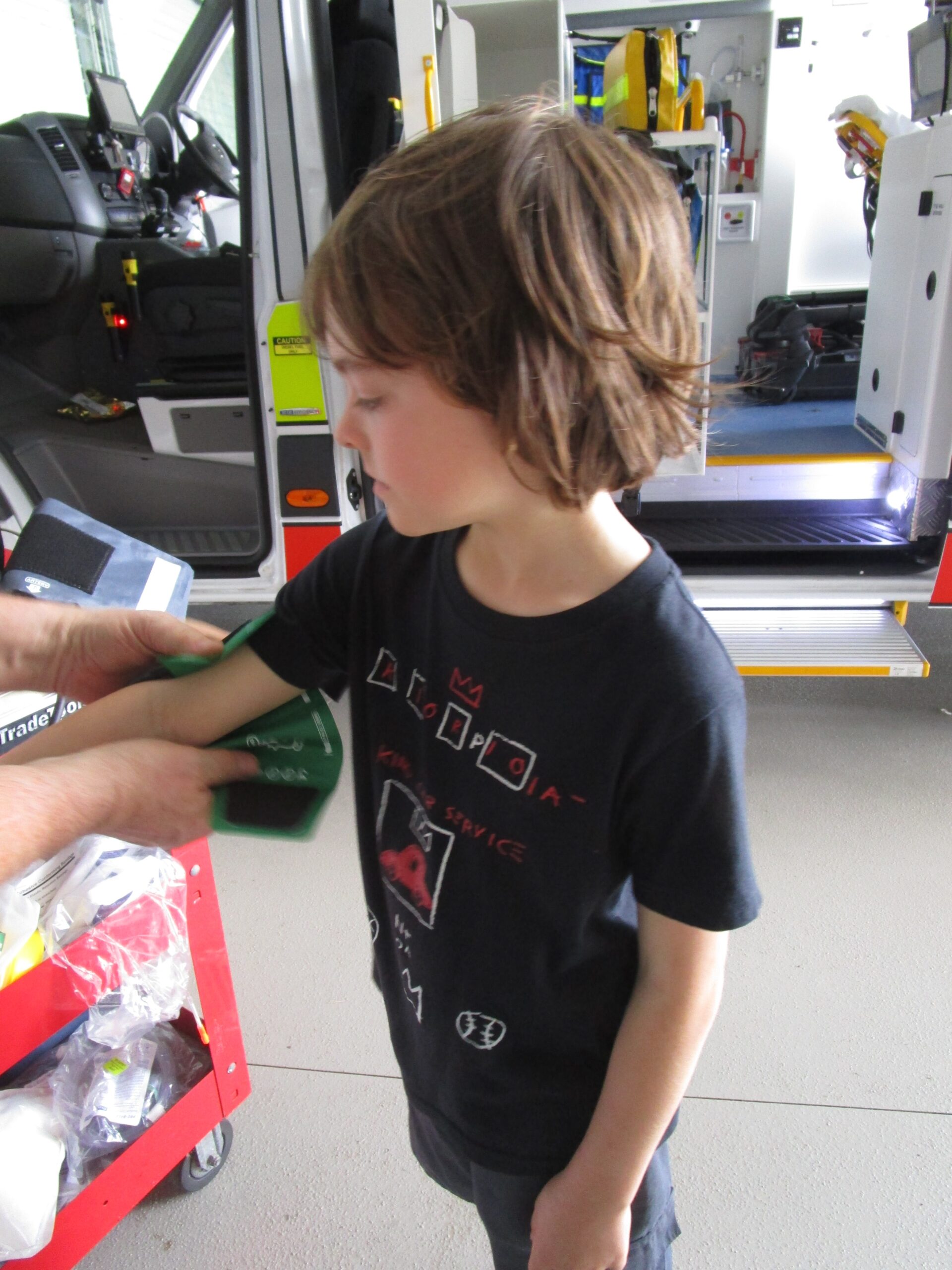
Check out when your local ambulance station is having their next open day.
IT’S NOT JUST NUTS THAT CAUSE ANAPHYLAXIS
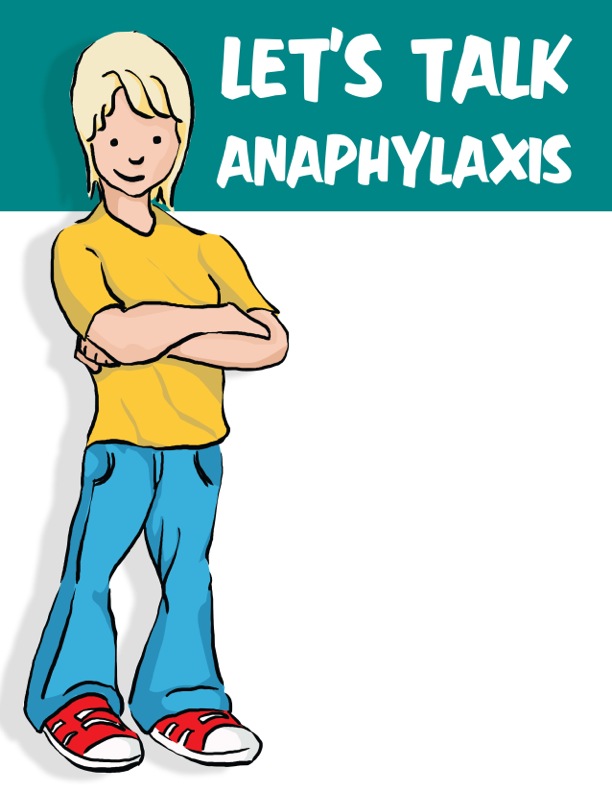
Let’s Talk Anaphylaxis campaign.
As part of this project we not only wanted to bring you the book but also to talk and share information about anaphylaxis.
We wanted to hear real stories from children and parents. Below are some food allergy friends brave enough to share their story with YOU.
Thank you to our young food allergy friends for sharing you thoughts and stories with us.
Please note these are personal views of our food allergy friends only. Any medical advice should always be sought from your child’s allergist.
If you or your child would like to either share your anaphylaxis story or be part of our Let’s Talk Anaphylaxis videos get in contact with us.
THAI’S FIRST AMBULANCE RIDE
Thai thought it may be helpful for others to see what his stay in hospital was like. Below are some pictures we took once the real Thai was feeling better.
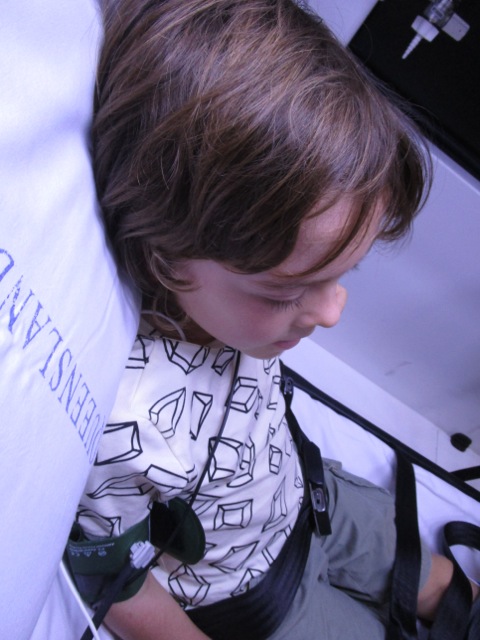
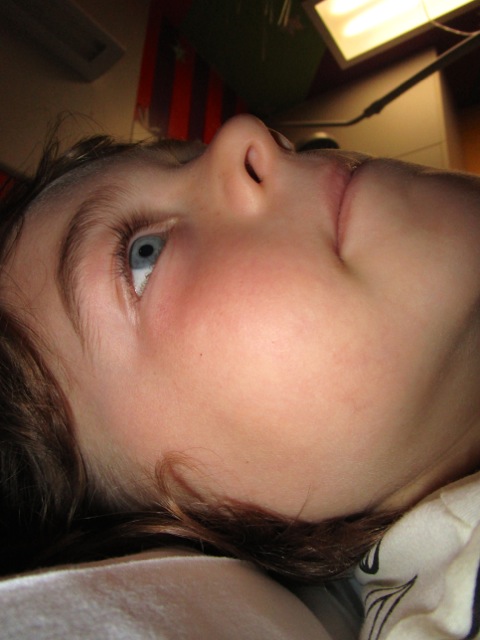
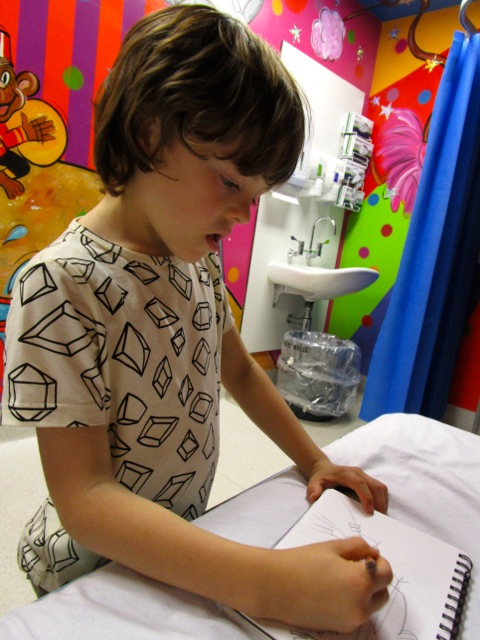
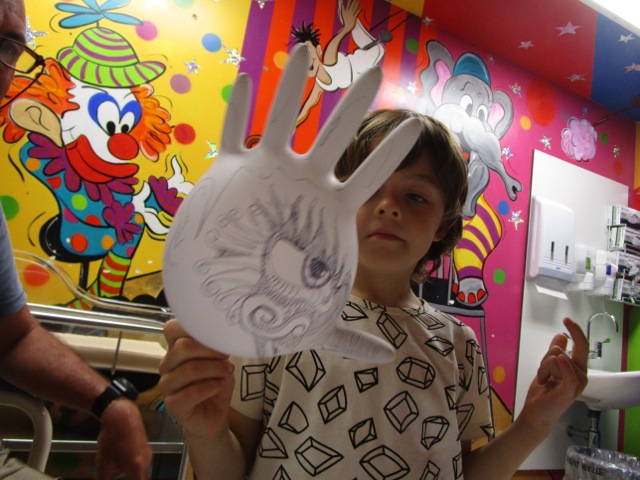
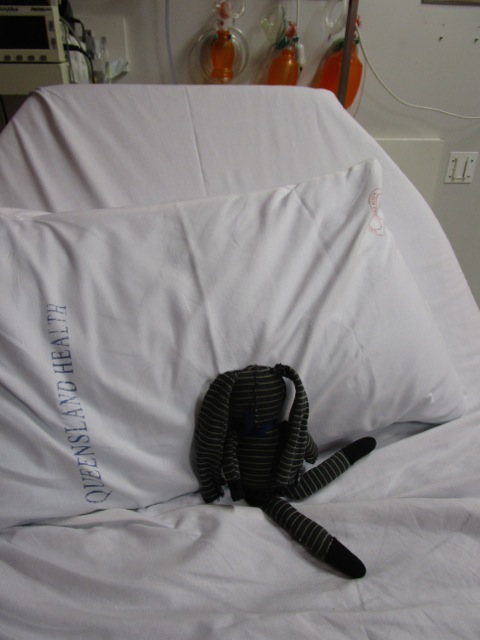
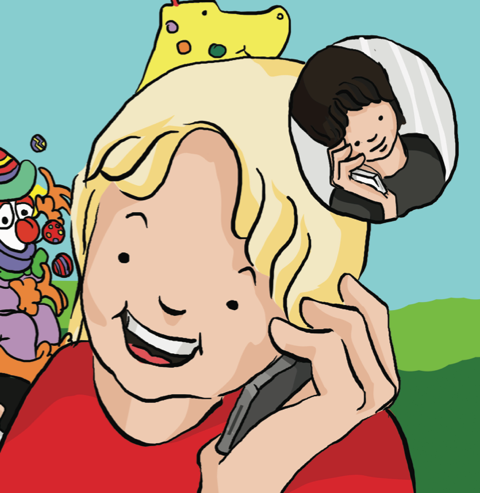
After 4 hours Thai was feeling much better and wanted to ring his brother Finn who was at a friends house. Not all children recover so quickly but we wanted others to see hospital is not a scary place and the doctors will help you feel better.
AFTER ANAPHYLAXIS
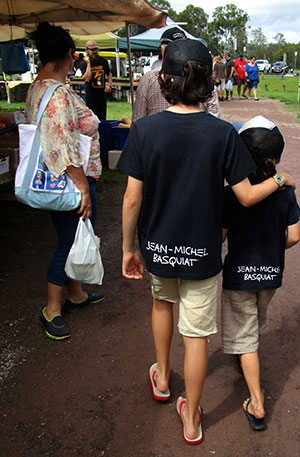
GO OVER ANY CRISIS EVENT AND TALK ABOUT IT WITH YOUR FAMILY.
Debrief and check in with each family member after experiencing anaphylaxis. Discuss symptoms they experienced, and positive lessons they learned. Discuss emotions they may now have after experiencing such an event. Include other children in this discussion. It can be quite a shock seeing a sibling experience a life-threatening reaction and can stir many emotions and fears. Seek professional support.
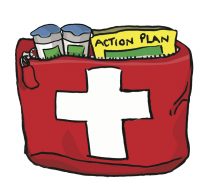
THE AFTER SHOCK – YOUR STORY
We have had 2 reactions in one month, one being an anaphylactic shock and the other an ambulance trip to the hospital and me giving the EpiPen to Arda. Arda is not the same child anymore. He is extremely angry, seems like he even has a temper and is extremely scared. At night he gets scared of the darkness, I cant leave him for a minute. His eyes are always on me. He asked me on a couple of nights if we should bring the EpiPen into our bed just in case!!! When he went to my brothers house, he asked me if there would be nuts on the floor again. He keeps looking in his medical bag to see if everything is in there. This breaks my heart, as all this thinking is way too much for a 3.5 year old.
Finally the first time in 2 months Arda has gone to bed without me. It’s been a very tiring 2 months and up until this week he wouldn’t play in our garden without me, wouldn’t sit in the lounge without me, leaving him for seconds only started working this week. Tonight was his first night he slept without me and didn’t even call me next to him. We have been taking him out heaps, which has helped. We have been reading more than usual and he has been talking to his almost 2 year old sister about food allergies.
He never ever takes food from the ground anymore. When we are out and he wants an ice cream, he asks me if it is safe and has no egg in them (he is such a darling)… so hopefully in the next few days we may have more changes, I must say … it is all about patience!
PRACTICE WITH A TRAINER EPIPEN
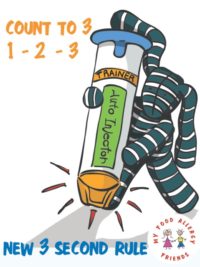
Regular practice with a trainer EpiPen will help you and your family feel confident if the need should ever arise and you need to use the real thing. You can also practice on an orange with expired pens. An important tip to remember is not to store your trainer pen with the real thing!
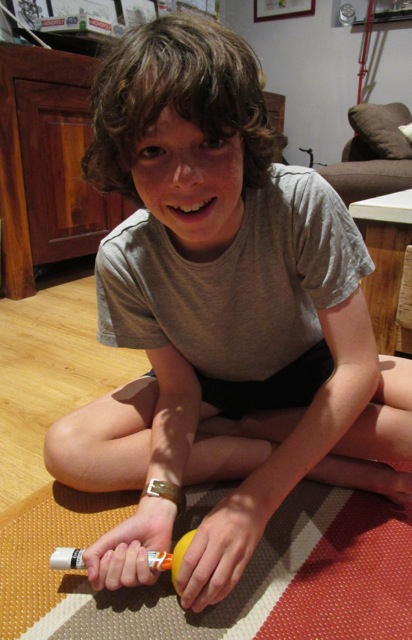
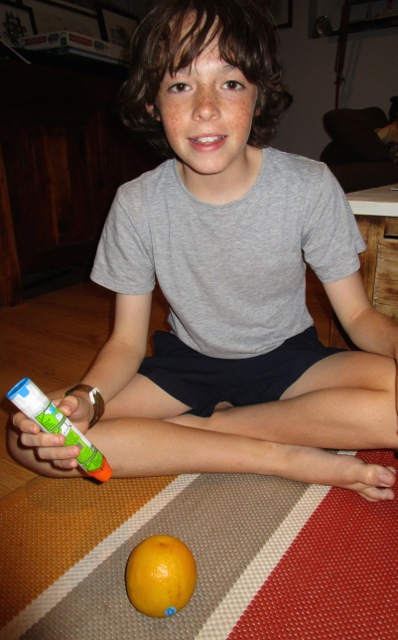
WHAT PEOPLE SAY ABOUT US

Danger food’ has been a clear and friendly term that the girls have really understood from your books thank you!
(age 2 & 4)

‘Great pictures and excellent level of language has been used, every single night he chooses these books for bed time stories.’
(age 3)

‘If we are going out and returning home late (7pm) the kids take their bedtime stories with them and guess what
yes a Thai is with us like an epipen’
(age 4)
